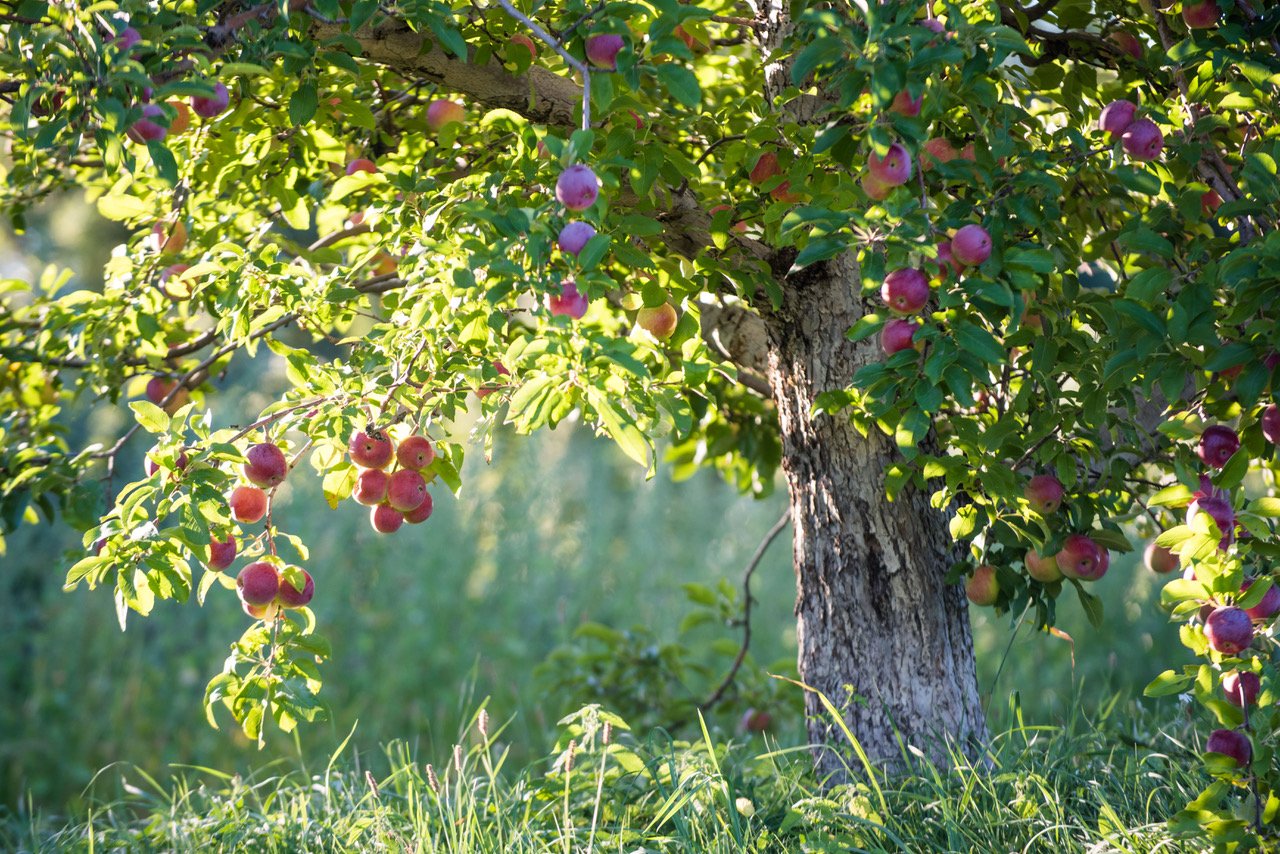More than just a farm, Scott Farm is a piece of Vermont history. The farm, nestled in the woods of Dummerston, Vermont, boasts a 231-year history of innovative agriculture and social responsibility. It’s not unusual to see tourists and Vermonters picking peaches in the summer or apples in the fall from their orchards, some planted in the early 20th century, with over 130 heirloom varieties. Like so many farms, Scott Farm was hit hard by the pandemic, shutting down many public offerings like educational and informational workshops and Pick-Your-Own services. And like many farms, Scott relied on agritourism to keep the farm operating, but folks weren’t coming out as before.
When Food Connects, The Intervale Center, Green Mountain Farm Direct, and The Center for Agricultural Economy formed the Vermont Food Hub Collaborative (VFHC), they thought of businesses like Scott Farm. In 2020 VFHC created Vermont Way Foods (VWF), a unique brand based on Vermont values. VWF will create new market opportunities for Vermont producers, supporting a robust and vibrant farm and food economy with the goal to break even and generate $12 Million each year in new sales for Food Hub members, farmers, and partners by 2025.
We sat down with Matt Landi, Director of Brand and Business Development for Vermont Way Foods, to talk about the history of this unique collaboration. And to learn how VWF will support Scott Farm and many other Vermont small food and farm businesses while building a regional food system that reflects Vermont values and returns wealth to Vermont’s rural communities.
“By localizing the supply chain and diving into retail merchandising strategy in a more structured, cohesive fashion, you’re offering small farms the opportunity to participate in merchandising and promotional programs typically offered primarily by national distributors.”
Food Connects (FC): Thanks much for talking with us, Matt. Can you tell us a little bit about the work you’ve been doing with the Vermont Food Hub Collaborative and Vermont Way Foods?
Matt Landi (ML): Yeah, of course! Thanks for this opportunity to talk about Vermont Way Foods. It’s a project I’m really excited to be involved with, especially right now.
For decades, the four organizations that comprise the VFHC have worked in Vermont, supporting farm viability and food access and creating experiences for people to engage in the food system. In 2020, the four food hubs saw $6 million in cumulative local food sales. By working together, sharing infrastructure, connections, and decades of expertise, VFHC will have an exponentially more significant impact on Vermont’s food system—carving out opportunities for Vermont producers who are poised to grow their businesses and meet the regional need for local, sustainably produced food. Trying to compete as a small producer is tough. Of the many challenges, effective logistics, overall capacity, and a competitive cost structure are key areas of focus as the business scales. The cost is probably much higher if you are selling 20 lb boxes compared to 40 lb boxes because you have a specialty product, and it costs more to get it where it’s going. The VFHC is essential in supporting our logistical service proposition, vital to survival, growth, and differentiation.
FC: Can you tell us a little bit about Vermont Ways Foods' impact on small businesses like Scott Farm?
ML: Scott Farm is a perfect example of a unique branding opportunity. No one else grows what they grow. They are dealing with antique varieties, it’s a multi-generational eating experience, and that’s a compelling story to tell the conscious consumer. If they had a big marketing department and a lot of money to invest, they could plaster marketing on a huge level. But they are a small operation, focusing on growing their heirloom apples, among other produce, as they should. Many are also rare because they are an outright challenge to grow. It’s very difficult to predict the crop's appearance year to year in a micro/variety by variety level.
The orchard is a living organism.
Heirloom apples aren’t uniquely Vermont, but they fit the mold of Vermont Way Foods. The VFHC is on a mission to help regional consumers find the foods and experiences they crave while helping to build a more just and sustainable food economy for Vermont. A food economy where our lands are working, ecological resources are sustainably managed, rural economies are flourishing, and our state’s food and farm culture continues to perform as a great economic multiplier for our tourism economy, small towns, and quality of life. VWF is the sustainable alternative to a global food market that incentivizes bigger, faster, cheaper, and easier.











